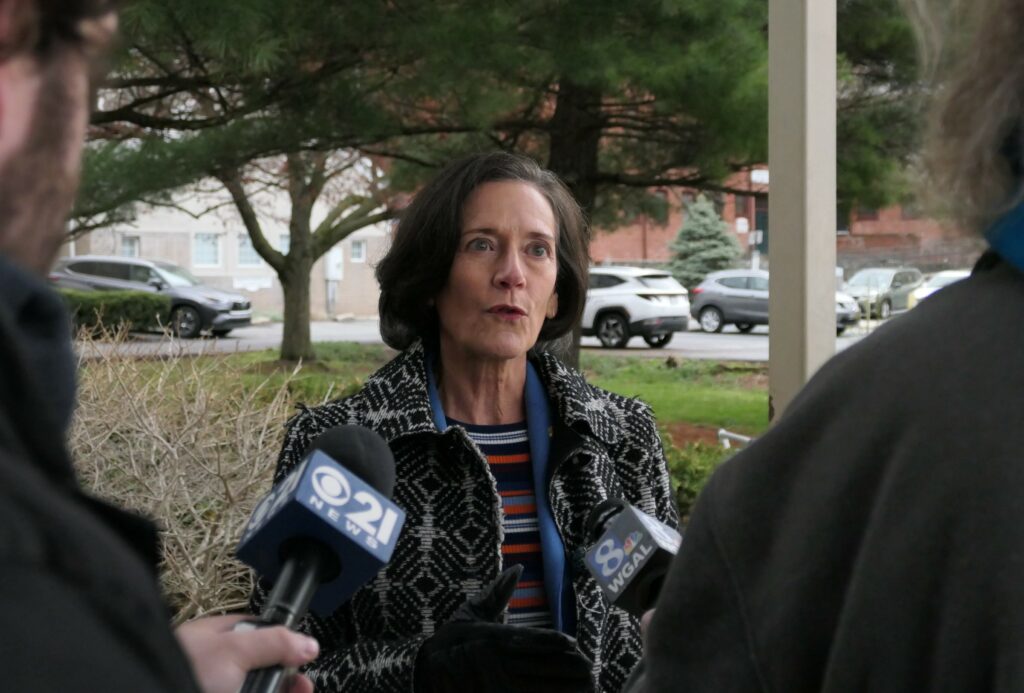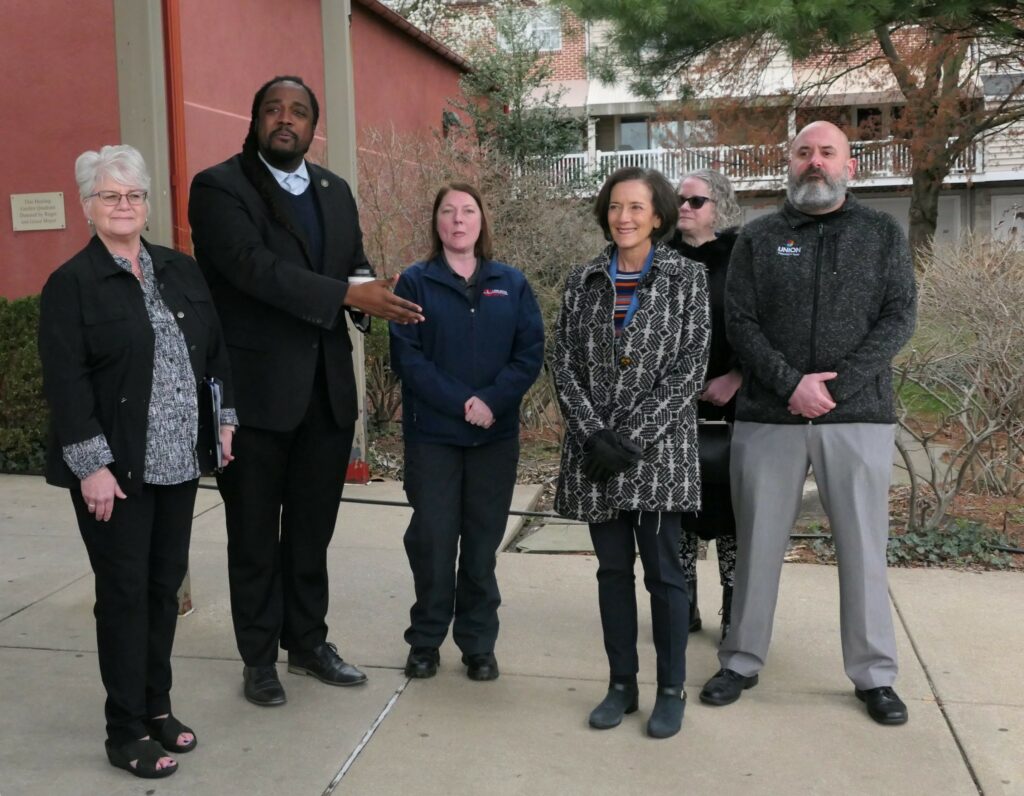Lancaster County’s “Refresh Lancaster” mobile shower unit is doing vital work on behalf of some of the most vulnerable people in the community, Pennsylvania’s secretary of human services said Friday morning.
“It’s critically important that unhoused people have the opportunity to be clean and also to get medical care,” Arkoosh said during a visit to Union Community Care’s downtown Lancaster clinic.
Arkoosh toured both the Refresh Lancaster unit, parked in Union Community Care’s lot, and the health clinic itself.
Refresh Lancaster is operated by Lancaster EMS in collaboration with the Lancaster County Homelessness Coalition. Launched in late 2021, it makes regular stops in Lancaster and four boroughs, offering homeless individuals showers, medical checkups, supplies such as socks and hygiene products; and, most importantly, referrals to services that can help them off the streets and into stable housing.
Deployment locations are chosen with that latter objective in mind, said Carli Bechtold, director of community paramedic programs at Lancaster EMS. Setting up near service providers like Union Community Care, allows the Refresh Lancaster staff to readily facilitate referrals and “warm hand-offs” for clients who are ready to take those steps.
A big part of it is building trust, she said. You can have services available, but if clients don’t trust the system and the people they encounter, “they’re not going to end up going.”

Arkoosh praised the comprehensive outreach model: There are robust services available, and making sure people can take advantage of them helps them get back on their feet. Providing mobile “street medicine” eases the burden on emergency rooms and helps to catch and address health problems before they become life-threatening.
Data compiled by Lancaster EMS shows that through December 2023, Refresh Lancaster made more than 500 deployments and averaged four clients per stop. Over that period, it provided 1,795 showers and 1,932 other services.
The people it serves span the gamut, Bechtold said: Men and women, senior citizens, young adults and children, the newly homeless and the chronically homeless.
Last year, Pennsylvania changed its regulations to allow health care practitioners to bill Medicaid for street medicine. Doing so “has been a real game-changer,” Arkoosh said, allowing providers to ramp up such services without having to write off essentially all the costs as voluntary charity, as was the case before.
Initially, the change applied to a small range of medical and mental health providers; in the fall, it was expanded to include more categories, including federally qualified heath centers like Union Community Care.
Penn Medicine Lancaster General Health has been operating a street medicine program locally for the past two years. Arkoosh said she was meeting with LG Health officials later Friday to talk about the initiative and how the new Medicaid provisions can promote its expansion.

Homelessness has increased both locally and nationwide, driven by factors including the pandemic, the opioid epidemic and a widespread shortage of affordable housing. Lancaster County’s 2023 “Point in Time” count identified 526 homeless individuals, up from a low of 321 in 2017; the coalition is expected to release the 2024 data shortly.
Pennsylvania has an acute shortage of housing that’s affordable for working families and people starting out in their careers. One issue is local regulation that drives up costs: The state encourages municipalities to consider “inclusionary” zoning policies like those outlined by the Pennsylvania Planning Board, Arkoosh said.
Meanwhile, Gov. Josh Shapiro’s 2024-25 budget includes multiple provisions to address Pennsylvania’s housing crisis, totaling $80 million in new funding. Among other things, the governor proposes increasing the budget for the PHARE program from $60 million to $100 million over four years.
PHARE stands for “Pennsylvania Housing Affordability & Rehabilitation Enhancement.” Run by the Pennsylvania Housing Finance Agency, it provides subsidizes for building and renovating affordable housing. It typically leverages $5 in private funding for every $1 allocated, state Rep. Ismail Smith-Wade-El, D-Lancaster, said.
Shapiro’s budget also includes $10 million more for Pennsylvania’s Homeless Assistance Program, which underwrites case management, rental assistance and shelter services, supplementing funding that counties receive from the U.S. Department of Housing & Urban Development. Its current budget, $18.3 million, has not been changed in about a decade, Arkoosh said.
An increase “is sorely needed,” she said.







